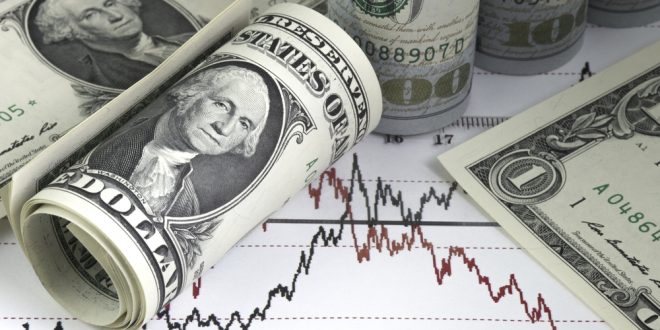The dollar headed for a loss for the fourth week in a row as it weakened, recording its lowest levels in several years against other major currencies.
The pound ended a series of gains that lasted for five weeks after the leaders of Britain and the European Union remained at odds over a trade agreement beyond Britain secedes from the bloc.
The US currency is stuck near its lowest level in two and a half years against a basket of currencies, as investors are betting on better returns than other currencies as the recovery from the pandemic takes hold.
Today, commodity linked currencies led the activity. The iron ore price increase lifted the Australian dollar to its highest level in two and a half years at $ 0.7572 and pushed it to a weekly gain of 1.8 percent.
The nine-month peak of oil prices pushed the Canadian dollar to its highest level since 2018 and the New Zealand dollar rose 71 cents to $ 0.7112, which is also its strongest since 2018.
The Australian dollar also jumped against other currencies to new heights, as it rose to its highest level in a year and a half against the yen, a six-month high against the euro, and a three-month high against the yuan and a three-week high against the New Zealand dollar.
The euro rose against the dollar to $1.2160 after the European Central Bank meeting did not produce a surprise on Thursday, and European Union leaders reached a settlement with Poland and Hungary regarding a financial package to help the economy recover from the Coronavirus pandemic.
The single currency rose 15% from its lowest level in three years at the height of market panic in March and added about 2% in two weeks since it finally broke the $1.20 level after several attempts.
The pound was an exception to the rest of the market ahead of a risky weekend, as Britain and the European Union negotiators were told they had until Sunday to decide whether a trade deal could be reached.
The British currency fell 0.9% this week as British and European leaders expressed doubts about whether they could salvage the deal.
At $1.3309, the pound is still taking into account an agreement to avoid imposing tariffs and annual trade quotas of about $ 1 trillion from January 1.
 Noor Trends News, Technical Analysis, Educational Tools and Recommendations
Noor Trends News, Technical Analysis, Educational Tools and Recommendations





